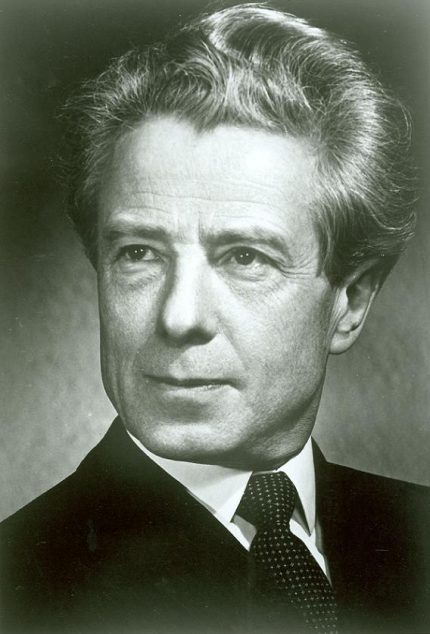Vintage Defauw broadcast helps plugs a gap in CSO history

The explosion of online programming alternatives has been a boon while most of us have been hunkered down at home for the past year due to Covid-19. Still, most of the streaming channels have shown little interest in serious cultural programming, preferring such fare as zombies, German thrillers and serial killer documentaries.
One of the few positive results to come out of the pandemic shutdown is that orchestras and opera companies around the world have attempted to fill the live-performance void by releasing fascinating archival material. In addition to its new CSO Sessions chamber performances, the Chicago Symphony Orchestra has been posting historic performances on its CSOtv platform for free viewing, entitled From the Archives: Great Music from Chicago.
In 2021 it’s almost impossible to conceive of a time when national television networks broadcast regular classical concerts. So imagine an era when a local television station actually presented concerts by its hometown orchestra in its studio and aired the performance to local and national audiences.
Yet that is precisely what the enlightened management of WGN did in its long-running series, Great Music from Chicago. Previous programs posted on CSOtv have offered such intriguing nuggets as the orchestra’s longtime principal cellist Frank Miller as soloist in Saint-Saëns’ Cello Concerto No. 1, with assistant conductor Walter Hendl on the podium. And the latest broadcast gives us former CSO music director Désiré Defauw returning for a concert in 1953.
Defauw was the CSO’s third music director from 1943-1947. His short tenure came between Frederick Stock’s epic 37-year reign and the turbulent period that followed him—a single season for the volatile Artur Rodzinski (1947-48), the brief but adventurous era of Rafael Kubelik (1950-53), and, finally, the arrival of the brilliant, tyrannical Fritz Reiner, which ushered in a celebrated decade-long partnership that took the orchestra to new heights (1953-1963).
The Defauw era has long been viewed as a transitional period—one of slender musical or historical significance, apart from getting through World War II with a non-Germanic music director. The paucity of CSO recordings under Defauw due to wartime restrictions likely accounts for that belief to a large extent. The recording ban began to ease after hostilities had ended, yet those few recordings Defauw did make in Chicago don’t offer a whole lot to go on. Probably most famous is a recording of the Mendelssohn Violin Concerto–not due to Defauw or the CSO but because it was soloist Mischa Elman’s first of his two recordings of the work.
So, this 58-minute live concert from WGN studios—broadcast Wednesday, December 9, 1953—helps in a small way to fill a gap in our knowledge of CSO history.
Defauw’s tenure as music director had ended six years earlier but as this return visit showed he clearly remained popular with Chicago audiences, at least those in the WGN studio for this event. In addition to possessing impressively high conductor hair, the diminutive Belgian, then 68, is an engaging presence, often smiling and more than capably leading the CSO in this program.
Defauw directs a spirited performance of three dances from his countryman André Grétry’s opera, Céphale et Procris (arranged by Felix Mottl). The harsh dryness of the sound takes some getting used to and there are passing moments of bandmasterly efficiency from the podium when one would have liked a wider dynamic range and more nuance. But on the whole the performance is delightful and the well-rehearsed camera work allows glimpses of such vintage front-desk musicians including Janos Starker as principal cellist.
The CSO strings are heard to better effect in the ensuing suite from Gabriel Fauré’s Pelleas and Melisande (here abridged). Defauw coaxes luminous violin tone in the opening Prelude, as well as notably hushed and sensitive playing from the orchestra in the pastoral pages. The lyric charm of the ensuing sections is evident as well.
Robert Schumann’s Symphony No. 4 concludes the concert. The slow introduction is lacking in tension but the performance gains in dramatic cut and momentum as it unfolds, and the lovely string tone emerges impressively at times even in the dry venue. The Scherzo offers punchy accents and the famous transition into the finale is skillfully done, majestic in its opening up. Fitful rhythmic heaviness apart, the finale is largely fleet and animated, building to a resounding coda.
Francis Coughlin is a worthy if formal, of-the-period host from a balcony seat. The handmade closing credit cards fall with a thud each time. Still, one is intrigued about the next concert Coughlin teases, a light Christmas program led by George Schick. One wonders if that program and others in the WGN series with lesser known maestri are preserved somewhere as well.
See Désiré Defauw conduct the CSO here on the CSOtv platform.
Posted in Articles

